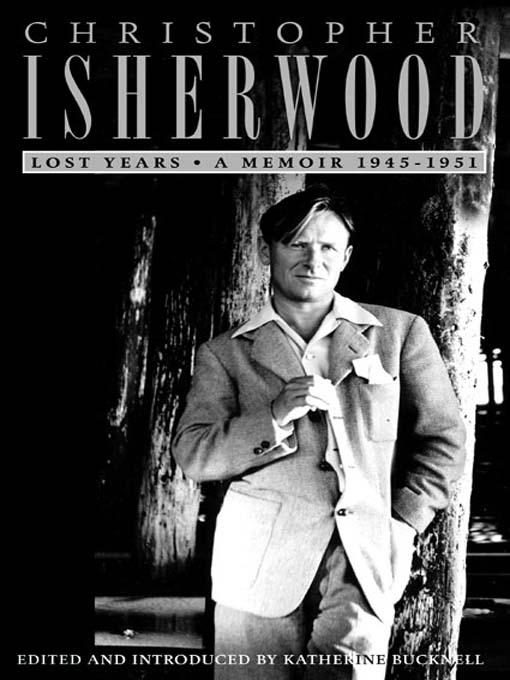The English writer Christopher Isherwood settled in California in 1939 and spent the war years working in Hollywood film studios, teaching English to European refugees, and converting to Hinduism. By the time the war ended, he realized he was not cut out to be a monk. With his self-imposed wartime vigil behind him, he careened into a life of frantic socializing, increasing dissipation, anxiety, and, eventually, despair.For nearly a half decade he all but ceased to write fiction and even abandoned his lifelong habit of keeping a diary.
This is Isherwood's own account, reconstructed from datebooks, letters, and memory nearly thirty years later, of his experience during those missing years: his activities in Santa Monica, and also in New York and London, just after the war.Begun in 1971, in a postsixties atmosphere of liberation, Lost Years includes explicit details of his romantic and sexual relationships during the 1940s and unveils a hidden and sometimes shocking way of life shared with friends and acquaintances--many of whom were well-known artists, actors, and film-makers. Not until the 1951 Broadway success of I Am a Camera, adapted from his Berlin stories, did Isherwood begin to reclaim control of his talents and of his future.
Isherwood never prepared Lost years for publication because he rapidly became caught up in writing the book that established him as a hero of gay liberation, Christopher and His Kind.
With unpolished directness, and with insight and wit, Lost Years shows how Isherwood developed his private recollections into the unique mixture of personal mythology and social history that characterizes much of his best work. This surprising and important memoir also highlights his determination to track down even the most elusive and unappealing aspects of his past in order to understand and honestly portray himself, both as a writer and as a human being.



